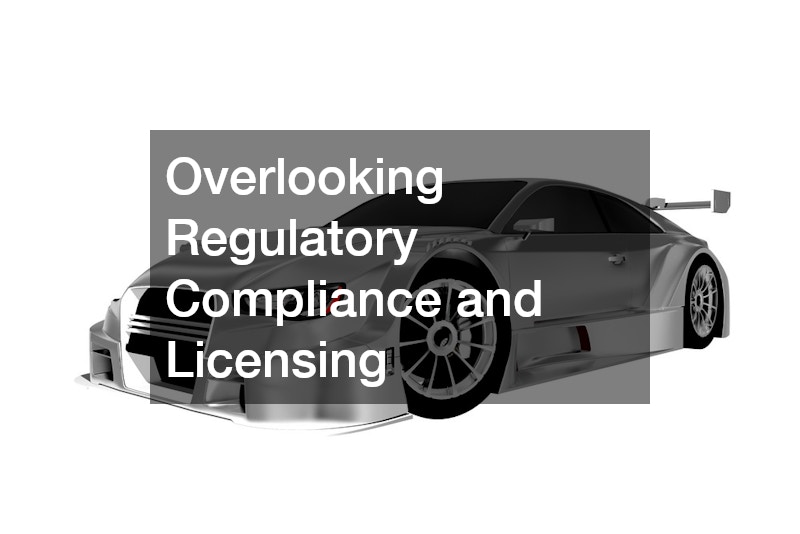The first and most significant mistake that a exotic car transportation company often makes is neglecting detailed consultations with their customers. This begins with an oversight in understanding the specific needs and preferences of the client and carries throughout the transporting journey. Exotic car owners often have unique requests that must be addressed clearly and professionally before initiating the transportation process.
Failure to establish clear communication and expectation-setting can lead to dissatisfaction and potential damage to client relations. Companies should ensure that their staff is well-trained to ask proper questions and provide thorough advice.
Moreover, skipping this essential step can lead to omissions in acquiring necessary details about the vehicle itself. Every exotic car might have specific handling requirements due to its unique build and value. A failure to collect precise information such as dimensions, weight, and any special instructions could result in unforeseen complications during transport. It’s imperative for companies to create a checklist or use software systems designed specifically to capture and manage these critical details accurately. Prioritizing a thorough pre-shipping consultation can significantly minimize risks and align client expectations.
Additionally, transparent communication fosters trust and ensures that clients feel confident entrusting their precious vehicles to the company’s care. This process should also include discussing insurance coverage, detailing all applicable services, and addressing any potential contingencies. Companies have the responsibility to educate their clients on their options, especially concerning high-value exotic automobiles. Employing effective communication strategies can not only prevent service misunderstandings but also amplify customer satisfaction and loyalty. Therefore, establishing a robust protocol for customer consultation is non-negotiable in maintaining a reputable exotic car transport service.
Neglecting Proper Vehicle Protection Measures
Another crucial pitfall for a exotic car transportation company is the failure to implement comprehensive vehicle protection measures. Exotic cars, with their bespoke designs and costly finishes, necessitate extra caution and care during transport. Utilizing enclosed exotic car transport methods is essential to shielding vehicles from environmental elements such as rain, dust, or UV exposure. Without these protections, companies risk exposing the cars to potential damage, which can incur hefty financial repairs and tarnish the company’s reputation. Therefore, it is imperative that all precautionary measures are deliberately and consistently applied throughout the transportation process.
Part of ensuring effective protection entails training staff to handle vehicles meticulously during loading and unloading procedures. Mishandling errors, even minor ones, can cause irreversible damage to a car’s exterior or delicate components. Comprehensive training on handling exotic cars is vital to mitigate these risks – from knowing how to properly secure the vehicle in an enclosed transport carrier, to understanding specific handling instructions for different car models. Companies should often evaluate and enhance their staff training programs to keep up with advancements in exotic car designs and transport technology.
Equally important is investing in the right transportation equipment and technology to fortify vehicle safety. Advanced transport carriers equipped with air ride suspension and hydraulic lift gates, for example, significantly reduce the likelihood of damage during transit. These tools ensure smooth travels regardless of road conditions. Furthermore, implementing tracking systems provides clients with real-time updates on their vehicle’s status, offering an added layer of security and peace of mind. A forward-thinking company that adapts and innovates in vehicle protection sets itself apart in the highly competitive exotic car transport industry.
Overlooking Regulatory Compliance and Licensing

Ensuring compliance with all legal and industry regulations is yet another area where exotic car transportation companies commonly falter. This oversight can introduce severe ramifications, including fines, service delays, and a damaged reputation. Exotic cars often fall under specific regulatory requirements due to their high value and special characteristics, mandating precise licensing and permits. It is critical that companies dedicate resources to stay informed on the ever-evolving regulatory landscape. Consistently updating licensing procedures and adhering strictly to regulations ensures smooth and uninterrupted operations.
Apart from national laws, companies should also be cognizant of state and local transportation regulations, which can vary significantly. Failure to accommodate these differences in jurisdictions can result in logistical interruptions and legal troubles. Proactive measures, such as employing regulatory compliance officers, can help identify and resolve potential issues before they arise. A significant portion of a company’s diligence should focus on maintaining an updated database of regulatory requirements pertinent to exotic car transports. This foundational compliance not only protects the company’s interests but also provides clients with reassurance in the service’s legitimacy and reliability.
Furthermore, possessing complete and accurate documentation is essential when dealing with client vehicles in transit. This aspect includes maintaining thorough insurance records, transport permits, and driver qualifications. Documentation serves as a protective measure in legal disputes and ensures transparency and accountability. Companies should continuously revise and audit their document management systems to uphold quality and adherence to industry standards. It is this commitment to regulatory compliance and comprehensive documentation that builds a robust framework for successful and reputable exotic car transportation services.
